
The Nerdy Dozen
¥39.24
When Neil Andertol and a motley crew of video-gaming whizzes accidentally download top-secret training software and are recruited by the military to restore a botched aircraft mission, they're no longer playing for points—they're playing to save the world! Part action movie, part slapstick comedy, debut author Jeff Miller's The Nerdy Dozen is a madcap adventure for the middle grade set.

The Improbable Theory of Ana and Zak
¥99.65
Perfect for fans of Nick and Norah's Infinite Playlist and The Statistical Probability of Love at First Sight, The Improbable Theory of Ana and Zak is Stonewall Award-winning author Brian Katcher's hilarious he said/she said romance about two teens discovering themselves on an out-of-this-world accidental first date at a sci-fi convention.When Ana Watson's brother ditches a high school trip to run wild at Washingcon, type-A Ana knows that she must find him or risk her last shot at freedom from her extra-controlling parents.In her desperation, she's forced to enlist the last person she'd ever want to spend time with—slacker Zak Duquette—to help find her brother before morning comes.But over the course of the night, while being chased by hordes of costumed Vikings and zombies, Ana and Zak begin to open up to each other. Soon, what starts as the most insane nerdfighter manhunt transforms into so much more. . . .
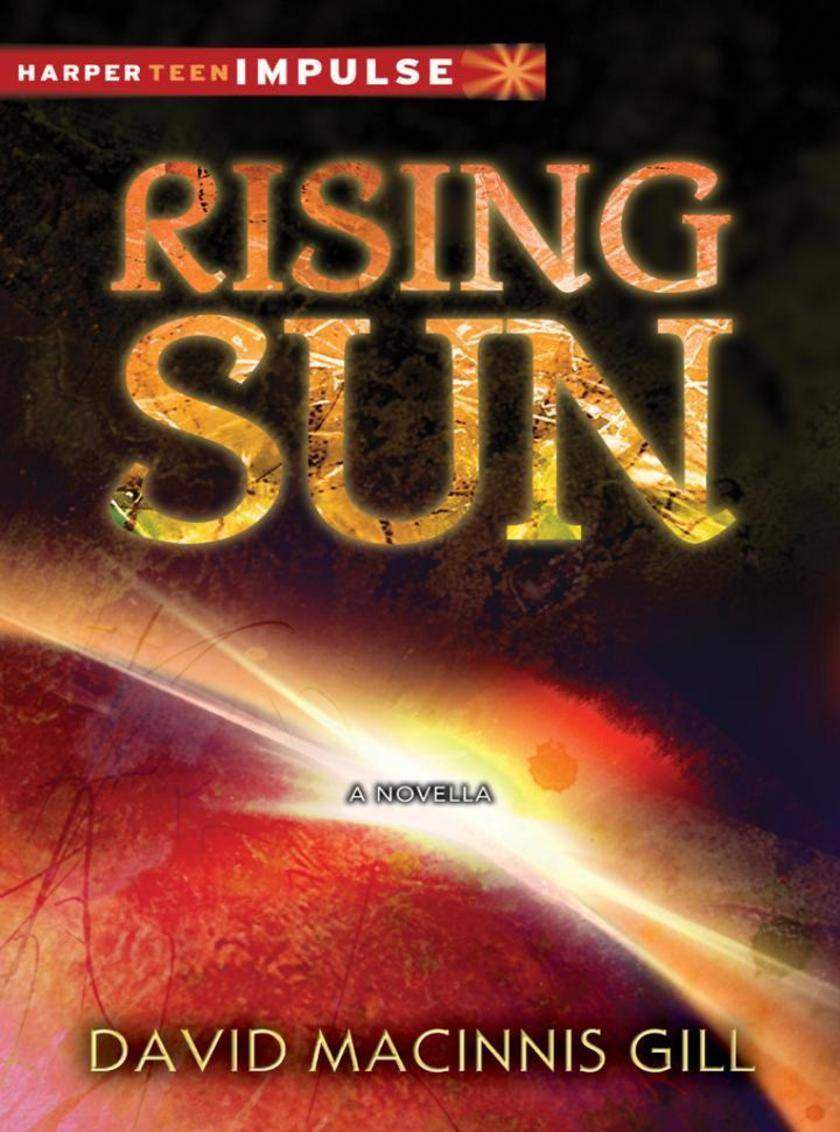
Rising Sun
¥21.73
Rising Sun is a stand-alone novella, a prequel to David Macinnis Gill's acclaimed Black Hole Sun, of which Suzanne Collins said, "Black Hole Sun rockets readers to new frontiers . . . action-packed."Jacob Stringfellow, aka Durango, once had a promising career in the elite armed forces. That was before. Before his father betrayed him and his unit. Before he almost died and had an artificial intelligence flash-cloned to his brain. Now Durango and Mimi (the AI) are figuring out how to get along and figuring out how to stay in the game. Set on a violent and unforgettable dystopian Mars, this is a must read for fans of the author's Black Hole Sun trilogy and for anyone who loves intense, action-packed science fiction.Epic Reads Impulse is a digital imprint with new releases each month.
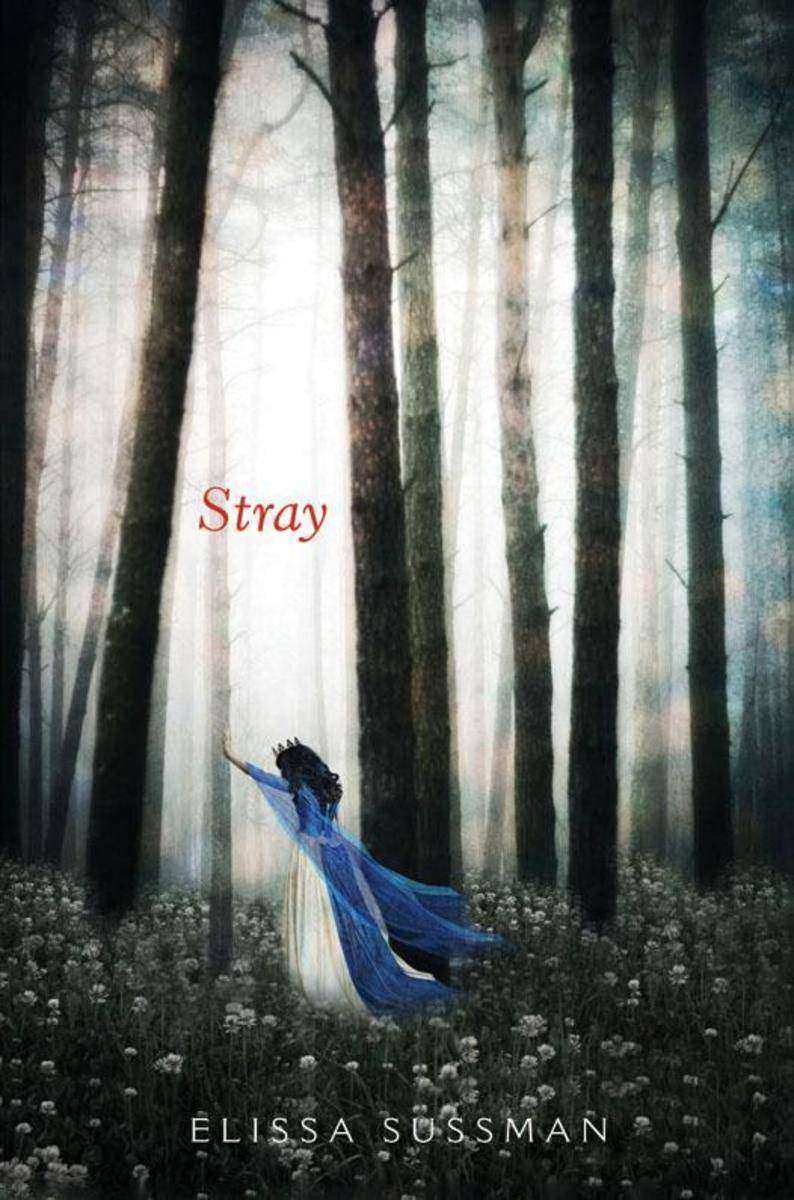
Stray
¥55.33
Epic, rewarding, and provocative, Elissa Sussman’s original fairy tale tells the story of Aislynn, a princess who misbehaves and must give up her royal trappings and enter a life of service as a fairy godmother. Booklist wrote, “Sussman delightfully mixed dystopian tension with retold fairy tales, and the result is something wholly original.”A cross between The Handmaid’s Tale and Wicked, with a dash of Grimm and Disney thrown in, this original fairy tale is part coming-of-age story, part adventure, part sweet romance. Will Aislynn remain true to her vows and her royal family and turn away from everything she longs forOr will she stray from The Path and discover her own wayIncludes a recipe for Fairy Godmother Bookbinder Bread, and a map.
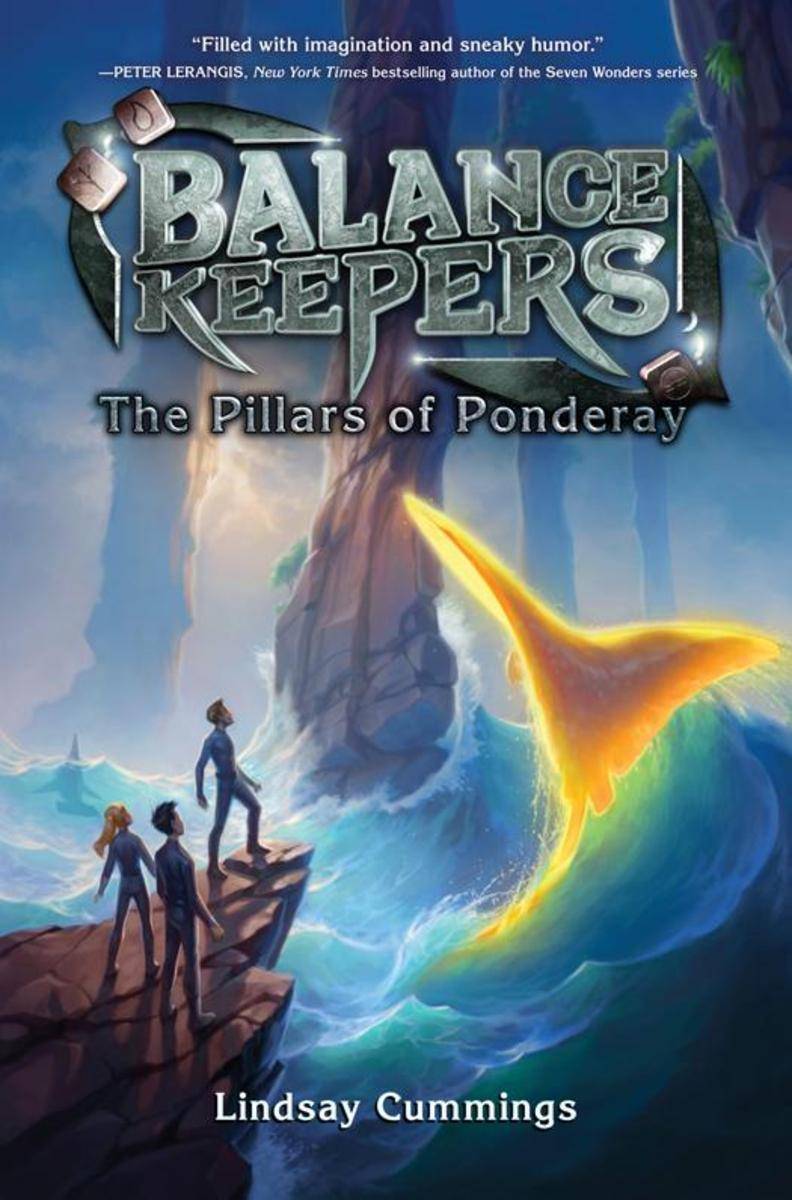
Balance Keepers, Book 2: The Pillars of Ponderay
¥39.24
This second book in Lindsay Cummings’s Balance Keepers series explodes with just as much magic, mystery, friendship, and humor as Book One. Fans of books like Brandon Mull's?The Candy Shop War?or the Unwanteds series by Lisa McMann will love the action and imagination in this epic fantasy adventure series.With both boy and girl main characters, creatures like Hammerfin sharks to battle, a traitor to expose, and a boarding school that could be described as Hogwarts underground, there's something for every reader to enjoy in this series reminiscent of the classic?Journey to the Center of the Earth. An anti-bullying theme also makes this great for in-classroom reading.In The Pillars of Ponderay, Balance Keepers Albert, Birdie, and Leroy enter the underground watery Realm of Ponderay along with their archrival, Hoyt, in an attempt to reset the Balance of the Realm. If they don’t succeed in time, all of California above could be consumed by tsunamis and hurricanes.

Love and Other Theories
¥56.08
Love and Other Theories is a fast-paced twist on the coming-of-age novel and the romantic comedy that Kirkus Reviews called "careful, subtle, and aching" in a starred review.Aubrey and her best friends made a pact to play by the guys' rules when it comes to dating. They're hoping the rules will keep them from experiencing high school heartbreak—they don't realize that these rules could just as easily keep them from opening their hearts and minds. And when new boy Nathan Diggs moves to town, Aubrey starts to think that some rules are meant to be broken.With equal parts bite and romance, topped off with an irresistibly engaging voice, Alexis Bass's novel is one you won't want to miss.
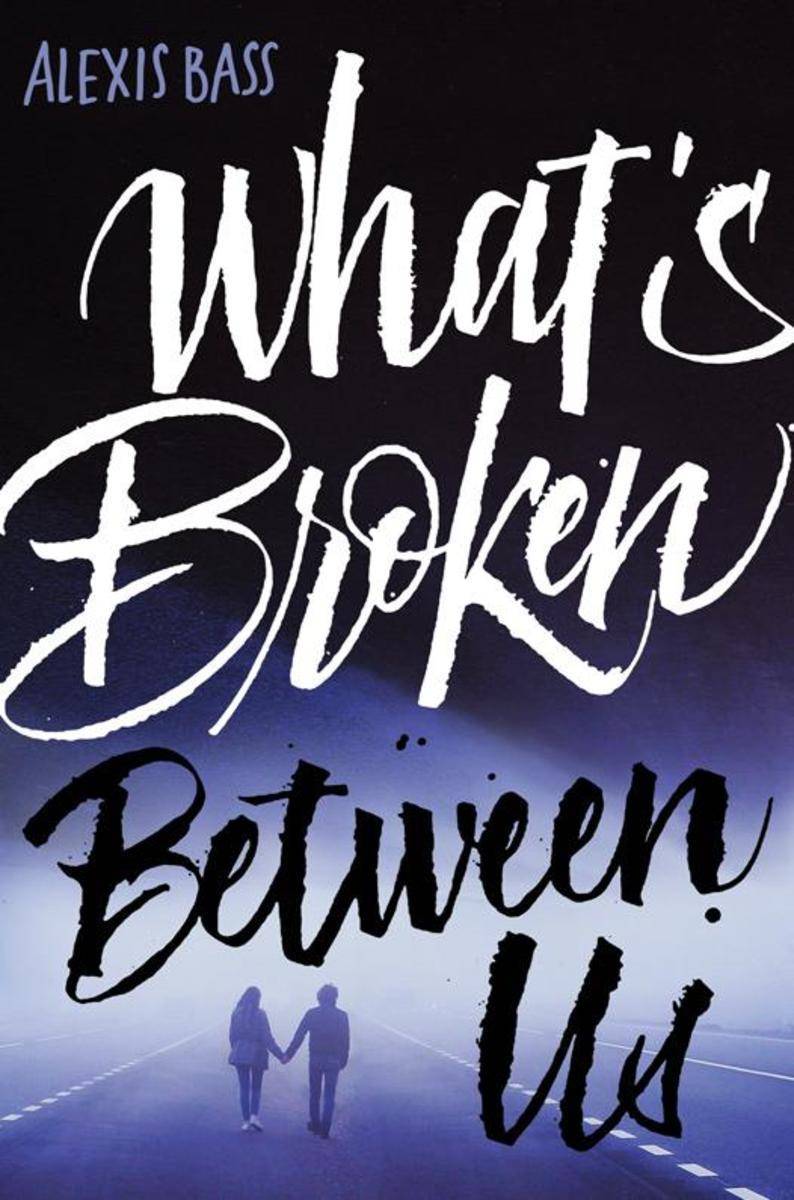
What's Broken Between Us
¥101.00
From Alexis Bass, author of Love and Other Theories, comes her heartbreakingly beautiful second novel, perfect for fans of Gayle Forman and of Robyn Schneider’s The Beginning of Everything.A year and a half ago, Amanda Tart’s brother got behind the wheel drunk, killed his best friend, and paralyzed his girlfriend. Today, he’s coming home from prison.Amanda’s been the one living with the fallout, made worse by her brother’s recent unapologetic TV interview. People think he’s a monster. Still, she loves him. It’s her dark secret, until she starts getting close to Henry again—whose sister is paralyzed from the accident.A year and a half ago, her brother destroyed his life. Now Amanda has to decide if she’ll let his choice destroy hers.

No Parking at the End Times
¥101.00
Abigail's parents believed the world was going to end. And—of course—it didn't. But they've lost everything anyway. And she must decide: does she still believe in themOr is it time to believe in herselfFans of Sara Zarr, David Levithan, and Rainbow Rowell will connect with this moving debut.Abigail's parents never should have made that first donation to that end-of-times preacher. Or the next, or the next. They shouldn't have sold their house. Or packed Abigail and her twin brother, Aaron, into their old van to drive across the country to San Francisco, to be there for the "end of the world." Because now they're living in their van. And Aaron is full of anger, disappearing to who-knows-where every night. Their family is falling apart. All Abigail wants is to hold them together, to get them back to the place where things were right. But maybe it's too big a task for one teenage girl. Bryan Bliss's thoughtful debut novel is about losing everything—and about what you will do for the people you love.
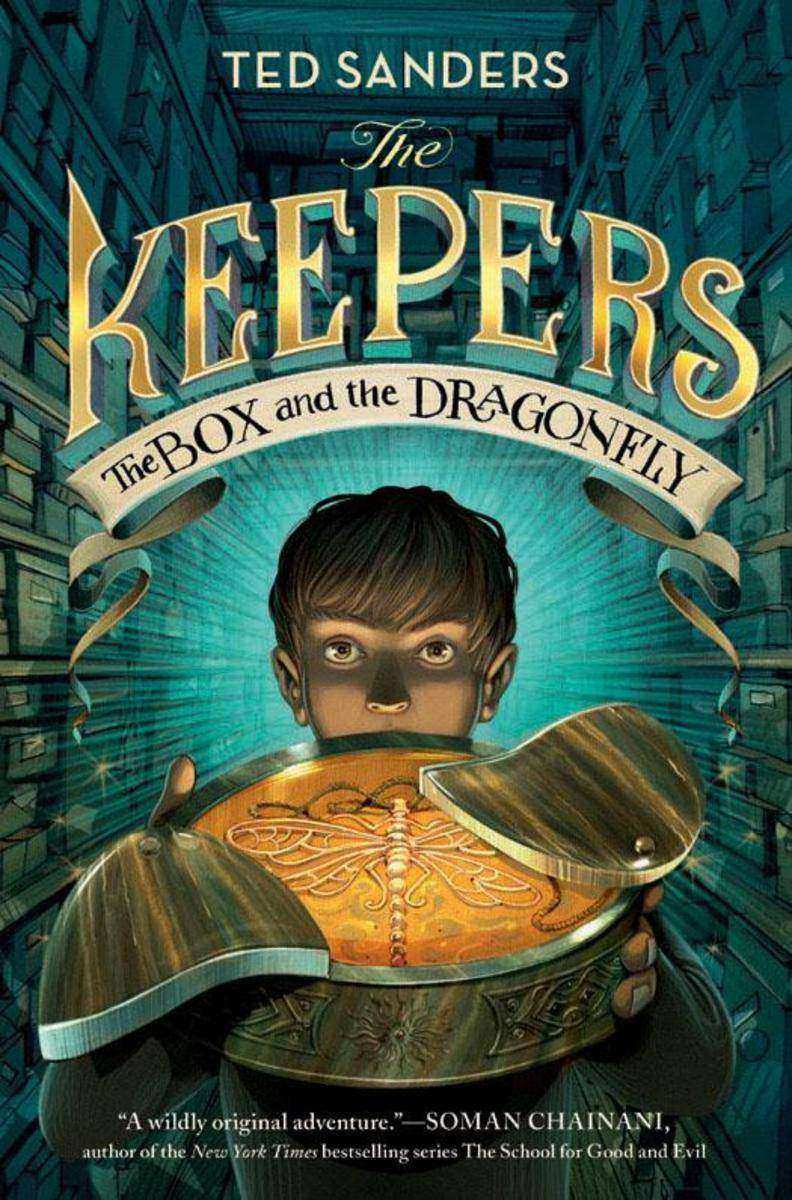
The Keepers: The Box and the Dragonfly
¥44.25
Experience the fantastic adventure filled with magical objects, secret sects, and life as we know it on the line! Mixing magic and physics, Ted Sanders has created an epic story that has the feel of classic fantasy but twists it into something new and innovative. From the moment Horace F. Andrews sees the sign from the bus—a sign with his own name on it—everything changes. The sighting leads him underground, to the House of Answers, a hidden warehouse full of mysterious objects. But there, he finds only questions. What is this curious placeWho are the strange, secretive people who entrust him with a rare and immensely powerful giftAnd what is he to do with it?When Horace finds the Box of Promises in the curio shop, he quickly discovers that ordinary-looking objects can hold extraordinary power. From the enormous, sinister man shadowing him to the gradual mastery of his newfound abilities to his encounters with Chloe—a girl who has an astonishing talent of her own—Horace follows a path that puts the pair in the middle of a centuries-old conflict between two warring factions in which every decision they make could have disastrous consequences.
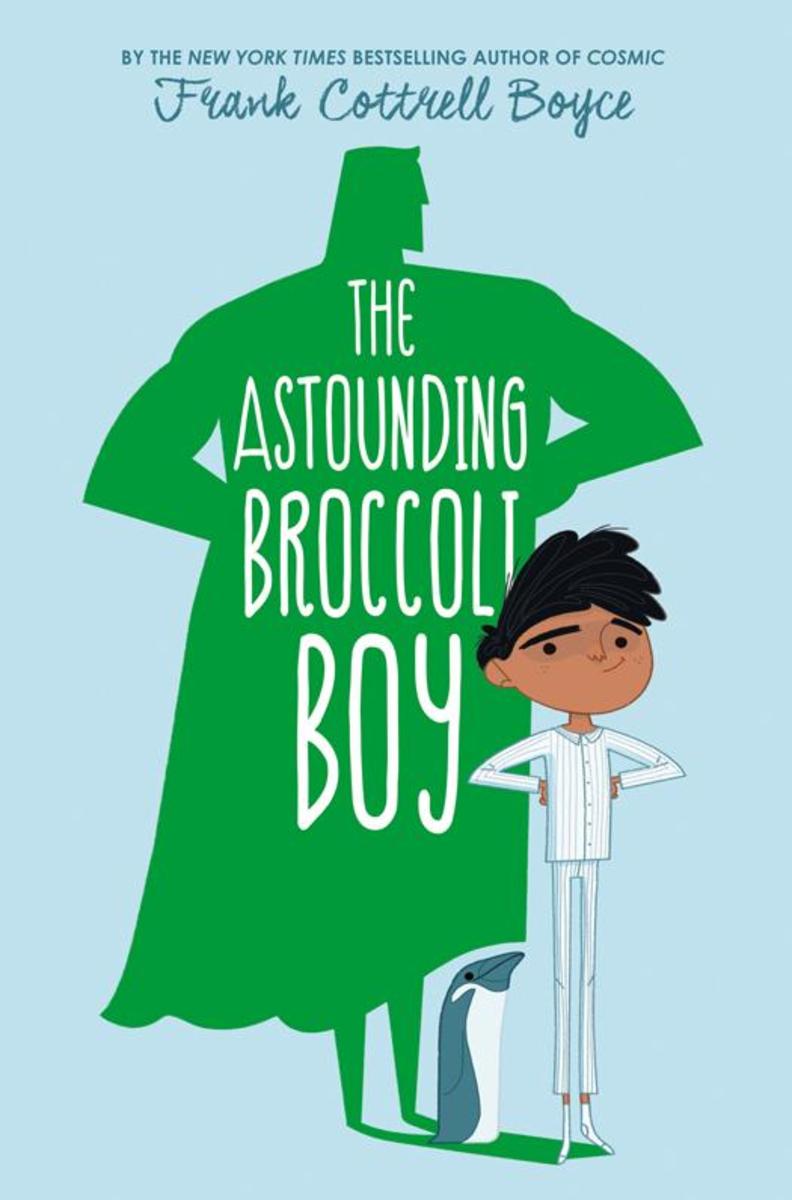
The Astounding Broccoli Boy
¥38.72
From Frank Cottrell Boyce—the beloved, award-winning, New York Times–bestselling author of Millions and Cosmic—comes another hilarious, heartbreaking, and completely original middle grade novel.Rory Rooney likes to be prepared for anything. That sort of planning pays off when you’re the smallest kid in your class. Rory is even prepared (mostly) for Tommy-Lee, his nemesis, who starts most days by throwing Rory out of the back of the school bus. Don’t be scared, his favorite book says, be prepared. And Rory aims to be. What’s more heroic than that?But Rory isn’t prepared when he suddenly and inexplicably turns green and finds himself stuck in an experimental hospital ward. The doctors are just as baffled as Rory is, and that’s when he begins to wonder: What if this isn’t caused by his genes, or a virus, or something he ateWhat if it’s something even more extraordinaryAfter all, more than a few superheroes’ careers began when they turned green. Could this be a sign that he’s meant for something greaterRory is going to find out—and that’s going to start with escaping from the hospital.?
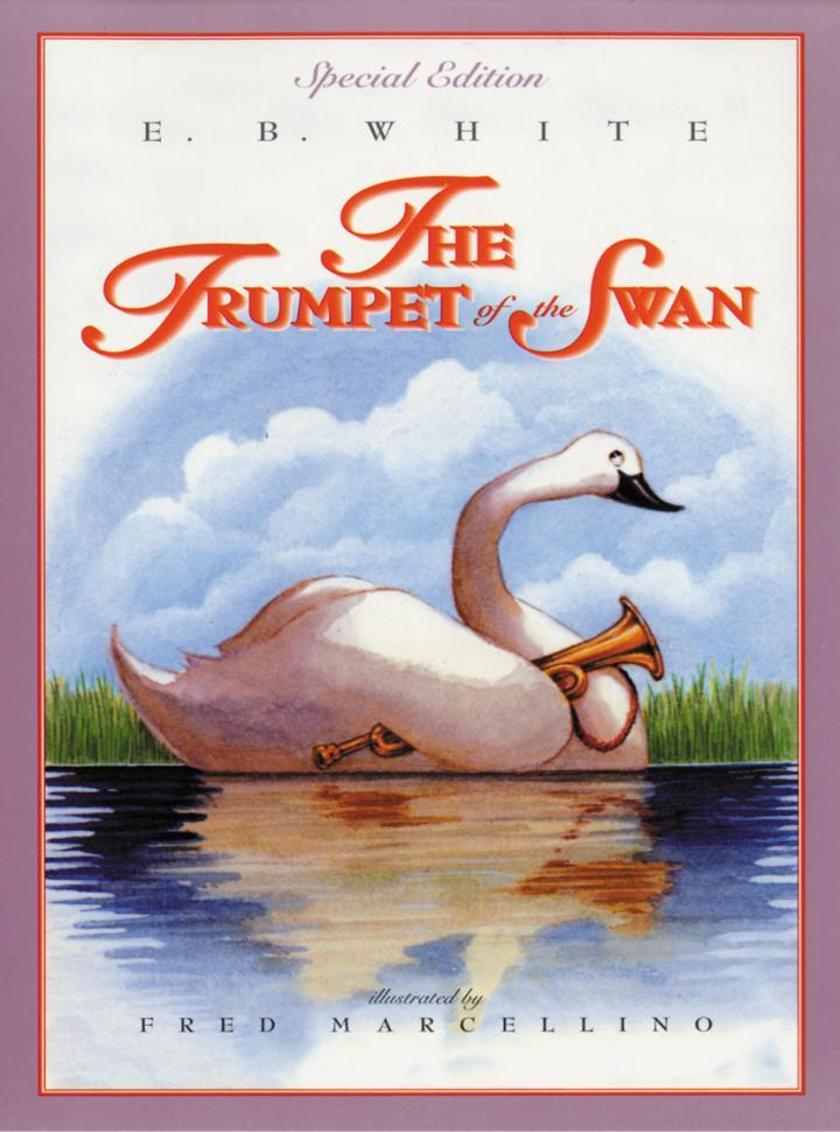
The Trumpet of the Swan
¥44.73
Now available for the first time as an ebook! Illustrations in this ebook appear in vibrant full color on a full-color device and in rich black-and-white on all other devices.This beloved book by E. B. White, author of Charlotte's Web and Stuart Little, is a classic of children's literature that perfectly describes what it's like to march to the beat of your own drummer.Louis is a trumpeter swan, but unlike the rest of his family, he can't make a sound. And since he can't trumpet his love, the beautiful swan Serena pays no attention to him. But when his father steals him a real brass trumpet, Louis has to find out if it's the key to what he's wanted all along.E. B. White's classic book is a tender novel of overcoming the odds and learning to do things on your own terms. It will continue to be enjoyed by generations to come. It contains evocative illustrations by Fred Marcellino, the acclaimed illustrator of Puss in Boots and I, Crocodile, among many other books.Correlates to the Common Core State Standards in English Language Arts

The Elementia Chronicles #1: Quest for Justice
¥56.08
Introducing an unofficial Minecraft-fan adventure series inspired by the bestselling game!Fans of the bestselling video game Minecraft, middle grade readers, and action-adventure story enthusiasts of all ages are about to embark on an exciting journey that will take them far beyond the world they know.Dark forces are at work on the Elementia server, and when new players Stan, Kat, and Charlie arrive on the scene, they quickly find themselves in peril. Targeted by more experienced players, the noobs must band together against the king, battle the natural forces of the game, and unravel the mysteries of Elementia in the name of justice.Written when he was sixteen, Sean Fay Wolfe's Quest for Justice is the debut novel by an unstoppable young storyteller and the first book in The Elementia Chronicles trilogy.Disclaimer: This book is not authorized, sponsored, endorsed or licensed by Mojang AB, Microsoft Corp. or any other person or entity owning or controlling any rights to the Minecraft name, trademarks or copyrights. Minecraft is a registered trademark of Mojang Synergies AB.
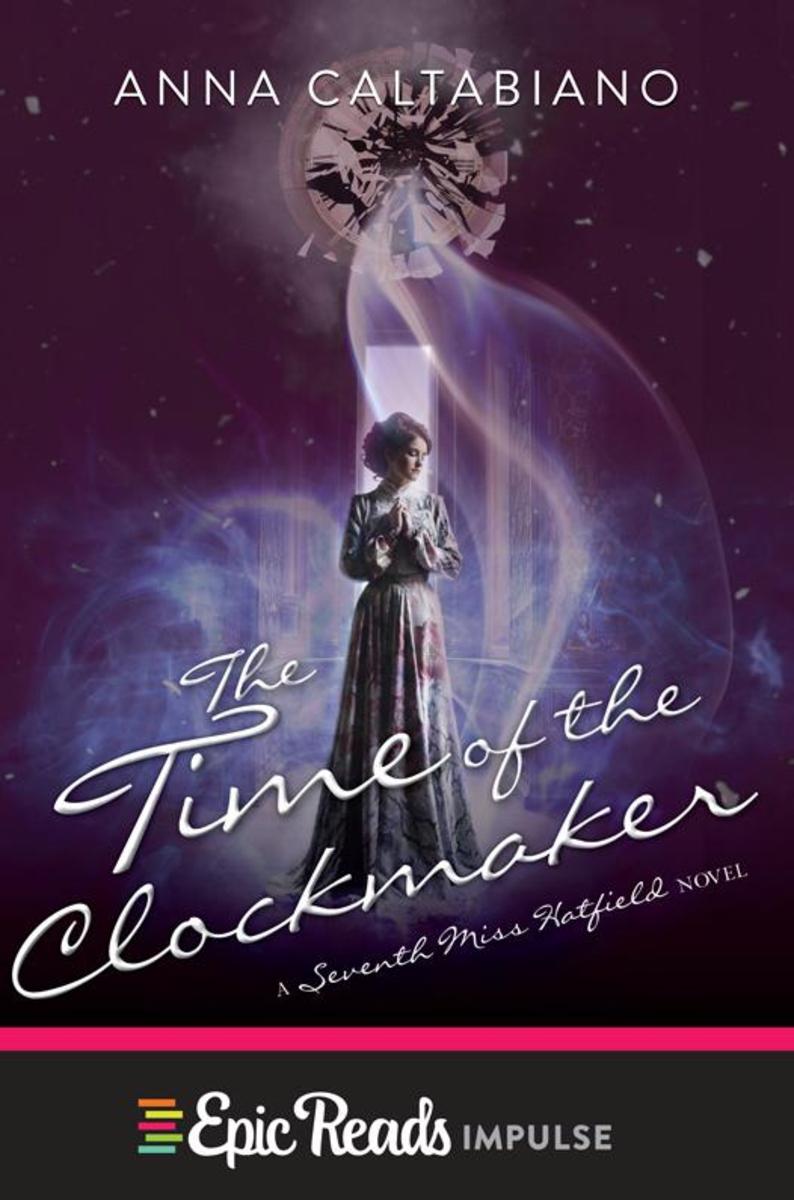
The Time of the Clockmaker
¥54.42
The Time of the Clockmaker, the sequel to The Seventh Miss Hatfield, is set in the lush court of Henry VIII and continues Rebecca's romantic and action-packed time-traveling adventures. With an epic romance that cannot be stopped by the bounds of time as well as deeper questions regarding immortality, this is perfect for fans of love stories such as The Time Traveler's Wife, as well as historical fiction with a fantastical twist, like Grave Mercy by Robin LaFevers.Cynthia, who is now known only as the seventh Rebecca Hatfield, has settled in to the regular routine of traveling with the sixth Miss Hatfield. But when Rebecca's mentor is shockingly killed in front of her, Rebecca must flee the place and time she knows. She has lost her family, her dearest love, and her ability to live a normal life. All she has left is the gift—or curse—of immortality, and the bizarre clock that allows her to travel in time.Just when Rebecca thinks she might be safe, she is attacked too. The mysterious black-clad figure steals the clock, but not before it transports them to a new time: Tudor England. Without her clock, Rebecca is stranded in the past. Alone, without friends or resources, she must find a way to survive in the beautiful—but dangerous—court of Henry VIII.And what of her love, Henley, a boy Rebecca met in another time and place, but whose ghostly figure follows Rebecca wherever she goes, even when she begins a whirlwind romance with a dashing apprentice to the king's alchemist?The mysterious attacker—someone who seems to possess the same powers as Rebecca—could be anyone at the lavish court. Can Rebecca escape him and find a way homeWould that mean once again sacrificing her heart for the sake of keeping the secret of immortality safe?Epic Reads Impulse is a digital imprint with new releases each month.

Pretty Little Liars 3-Book Collection
¥174.42
This collection contains the first three novels in Sara Shepard's #1 New York Times bestselling Pretty Little Liars series, making it a perfect introduction to the books that inspired the hit ABC Family original TV showIn Rosewood, majestic estates sprawl for acres, and Tiffany toggle bracelets dangle from every girl's wrist. But not all that glitters is gold, and the town harbors secrets darker than anyone could imagine—like the truth about what really happened the night Alison DiLaurentis went missing. . . .. Pretty Little Liars: Welcome to Rosewood and the pretty little liars who call it home. High school juniors Spencer, Hanna, Aria, and Emily thought their darkest secrets vanished when their best friend, Alison, went missing three years ago. But now someone named "A" is sending them notes and threatening to reveal their ugliest secrets—things only Alison knew. Pretty Little Liars #2: Flawless: Four pretty little liars have been very bad girls. But their most horrible secret yet is so scandalous that the truth would ruin them forever.Pretty Little Liars #3: Perfect: Four perfect-looking girls aren't nearly as perfect as they seem: Aria can't resist her forbidden ex. Hanna is on the verge of losing her BFF. Emily is freaking out over a simple kiss. And Spencer can't keep her hands off anything that belongs to her sister.

Warriors 6-Book Collection with Bonus Book: Enter the Clans
¥436.17
The first story arc in the #1 nationally bestselling epic series is now available as an ebook collection with striking new art!For generations, four Clans of wild cats have shared the forest, but now the balance of power is shifting and sinister perils threaten the peace. Into the midst of this turmoil comes an ordinary young house cat named Rusty…who may turn out to be the bravest warrior of them all.Includes:Warriors #1: Into the Wild Warriors #2: Fire and Ice Warriors #3: Forest of Secrets Warriors #4: Rising Storm Warriors #5: A Dangerous Path Warriors #6: The Darkest Hour Warriors: Enter the Clans

The Elementia Chronicles #2: The New Order
¥55.93
An unofficial Minecraft-fan adventure series inspired by the bestselling game!Fans of the bestselling video game Minecraft, middle grade readers, and action-adventure story enthusiasts of all ages experience an exciting journey that will take them far beyond the world they know.President Stan has led his people through an epic battle and brought peace to the Republic of Elementia. But dissent is rippling through the countryside. King Kev's loyal followers are still at large, and a new organization, the Noctem Alliance, is poised to strike terror throughout the land. With new threats on the horizon and citizens of the Republic dividing between two loyalties, Stan must decide the best way forward for his people and stop the Noctem Alliance before it destroys them all.Written when he was seventeen years old, Sean Fay Wolfe's The Elementia Chronicles Book Two: The New Order is the second novel in The Elementia Chronicles trilogy.Disclaimer: This book is not authorized, sponsored, endorsed, or licensed by Mojang AB, Microsoft Corp., or any other person or entity owning or controlling any rights to the Minecraft name, trademarks, or copyrights. Minecraft is a registered trademark of Mojang Synergies AB.
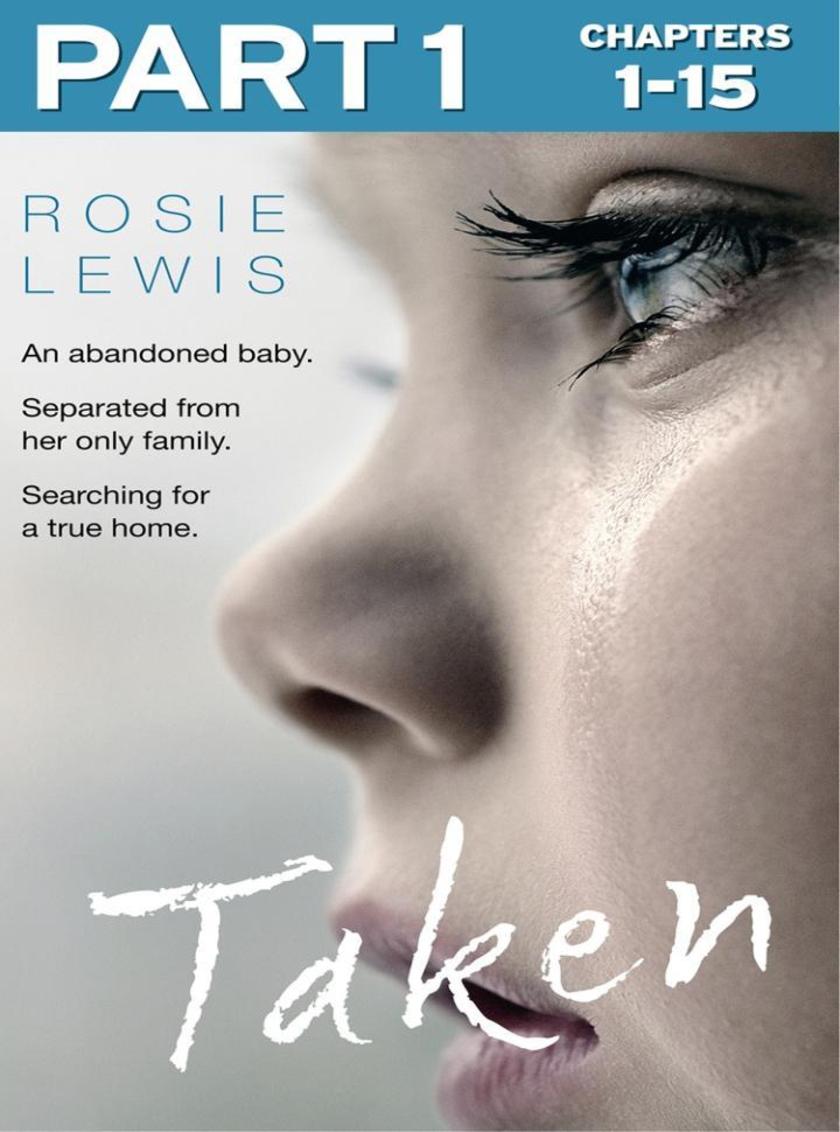
Taken: Part 1 of 3
¥24.33
Experienced foster carer, Rosie Lewis, takes on the heart-breaking case of Megan, a baby born with a drug addiction and a cleft palate. Addicted to drugs from birth because of her mother’s substance abuse during pregnancy, new-born Megan is taken into Rosie’s loving care. Rosie is supposed to help Megan find her new permanent home, but it turns out that Megan has already found her ‘forever mummy’ in Rosie. Rosie grows incredibly attached to Megan and applies to adopt her, but the system refuses her in favour of a young couple and Rosie is devastated. Against all her instincts, Rosie does her job and prepares Megan for her new ‘forever family’, but everything about Megan leaving feels wrong. When Rosie learns a few months later that Megan’s adoption has broken down, she is saddened but also filled with hope – will this little girl be allowed to return to her true ‘forever home’?
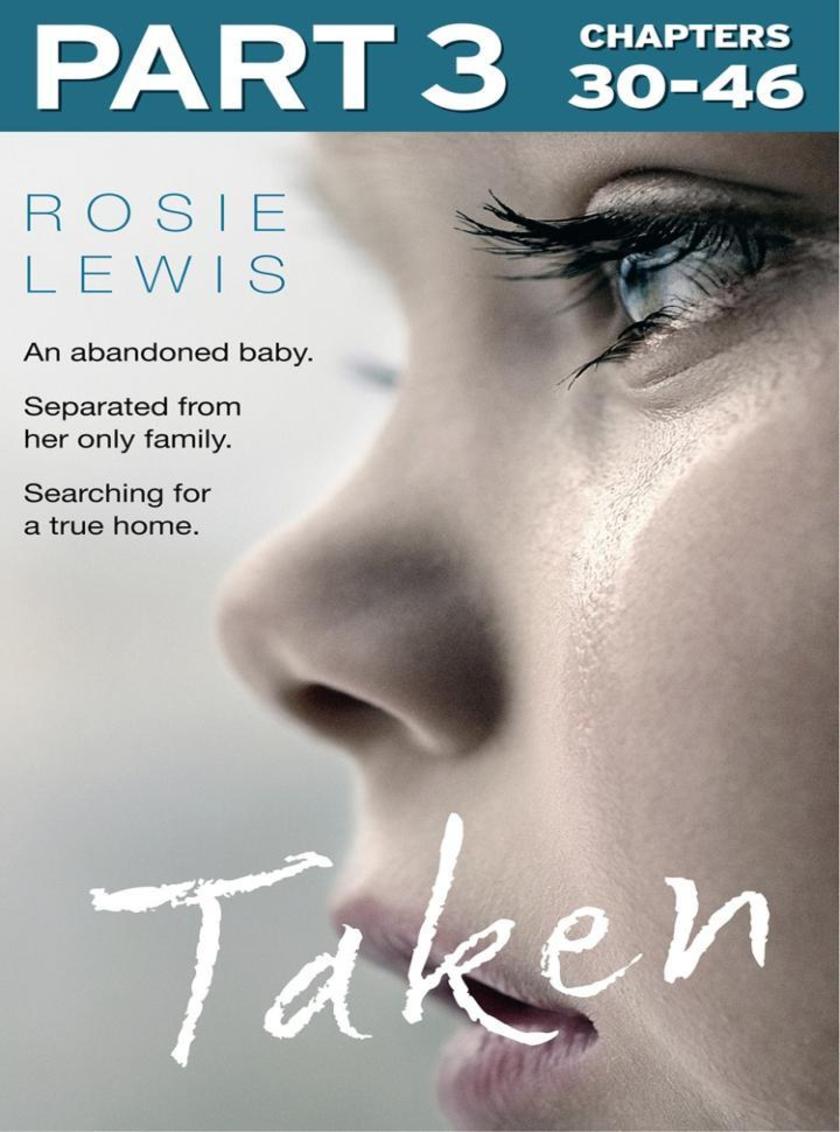
Taken: Part 3 of 3
¥24.33
Experienced foster carer, Rosie Lewis, takes on the heart-breaking case of Megan, a baby born with a drug addiction and a cleft palate. Addicted to drugs from birth because of her mother’s substance abuse during pregnancy, new-born Megan is taken into Rosie’s loving care. Rosie is supposed to help Megan find her new permanent home, but it turns out that Megan has already found her ‘forever mummy’ in Rosie. Rosie grows incredibly attached to Megan and applies to adopt her, but the system refuses her in favour of a young couple and Rosie is devastated. Against all her instincts, Rosie does her job and prepares Megan for her new ‘forever family’, but everything about Megan leaving feels wrong. When Rosie learns a few months later that Megan’s adoption has broken down, she is saddened but also filled with hope – will this little girl be allowed to return to her true ‘forever home’?
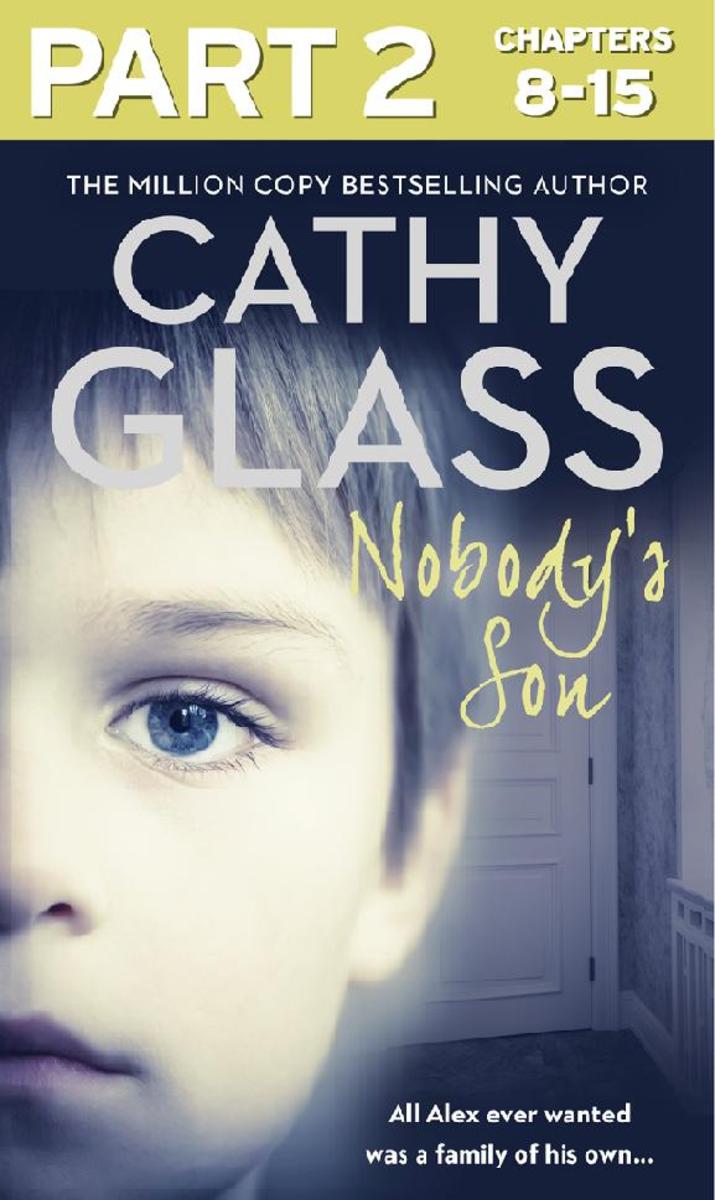
Nobody’s Son: Part 2 of 3: All Alex ever wanted was a family of his own
¥20.60
Born in a prison and removed from his drug-dependent mother, rejection is all that 7-year-old Alex knows. When Cathy is asked to foster little Alex, aged 7, her immediate reaction is: Why can’t he stay with his present carers for the last month? He’s already had many moves since coming into care as a toddler and he’ll only be with her a short while before he goes to live with his permanent adoptive family. But the present carers are expecting a baby and the foster mother isn’t coping, so Alex goes to live with Cathy. He settles easily and is very much looking forward to having a forever family of his own. The introductions and move to his adoptive family go well. But Alex is only with them for a week when problems begin. What happens next is both shocking and upsetting, and calls into question the whole adoption process.
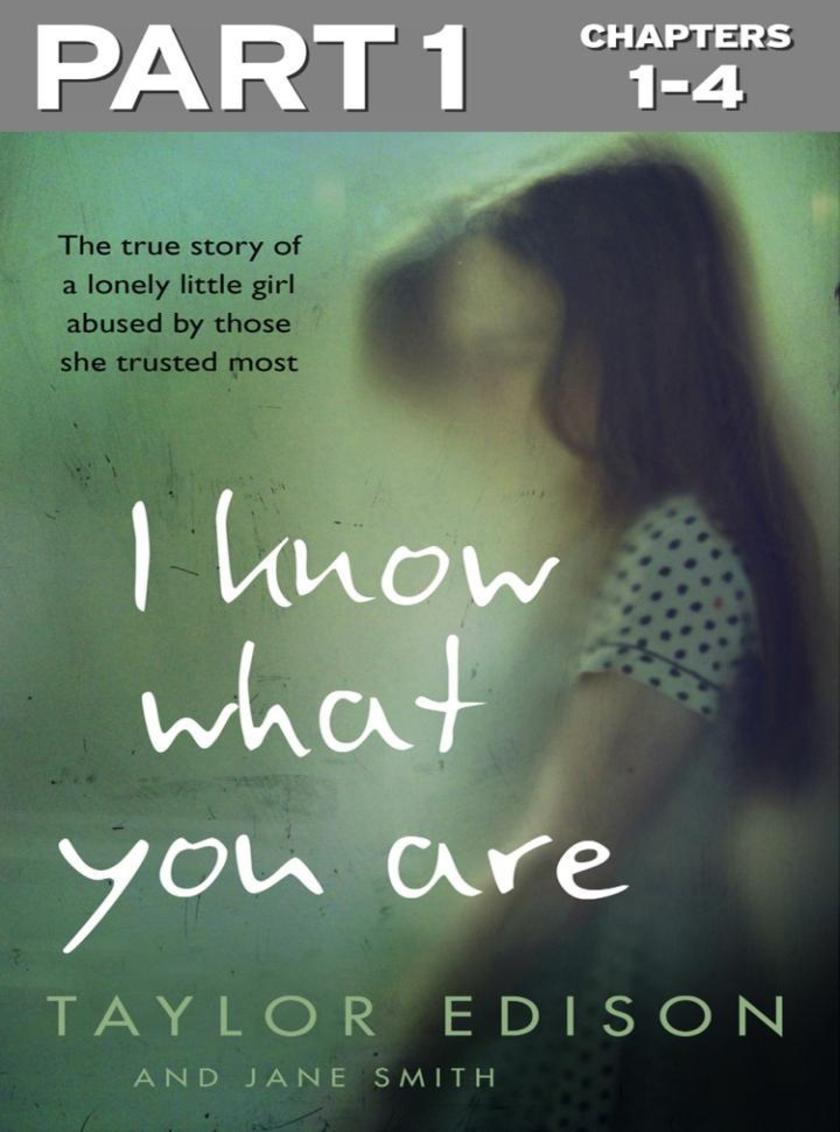
Part 1 of 3: The true story of a lonely little girl abused by those she trusted
¥25.60
The moving true story of a little girl with Asperger syndrome, controlled and abused by the one person she called her friend. Taylor had always struggled to make friends – she felt ‘different’. Taylor never knew her father and her mother wasn’t around much. She just didn’t understand people, and was alone and scared much of the time. That was until, aged just 11, an older married man called Tom befriended her. She loved having someone who would talk to her, listen to her, a protector. But when he moved away a few months later she was easy prey to the gang of drug dealers and petty criminals who groomed and abused her, using her as a form of currency to appease their debtors and amuse their friends. Increasingly isolated and desperate, it began to look as though the pattern of Taylor's life had been set – until she started to fight back, determined to build a safe future for herself, however long it took.
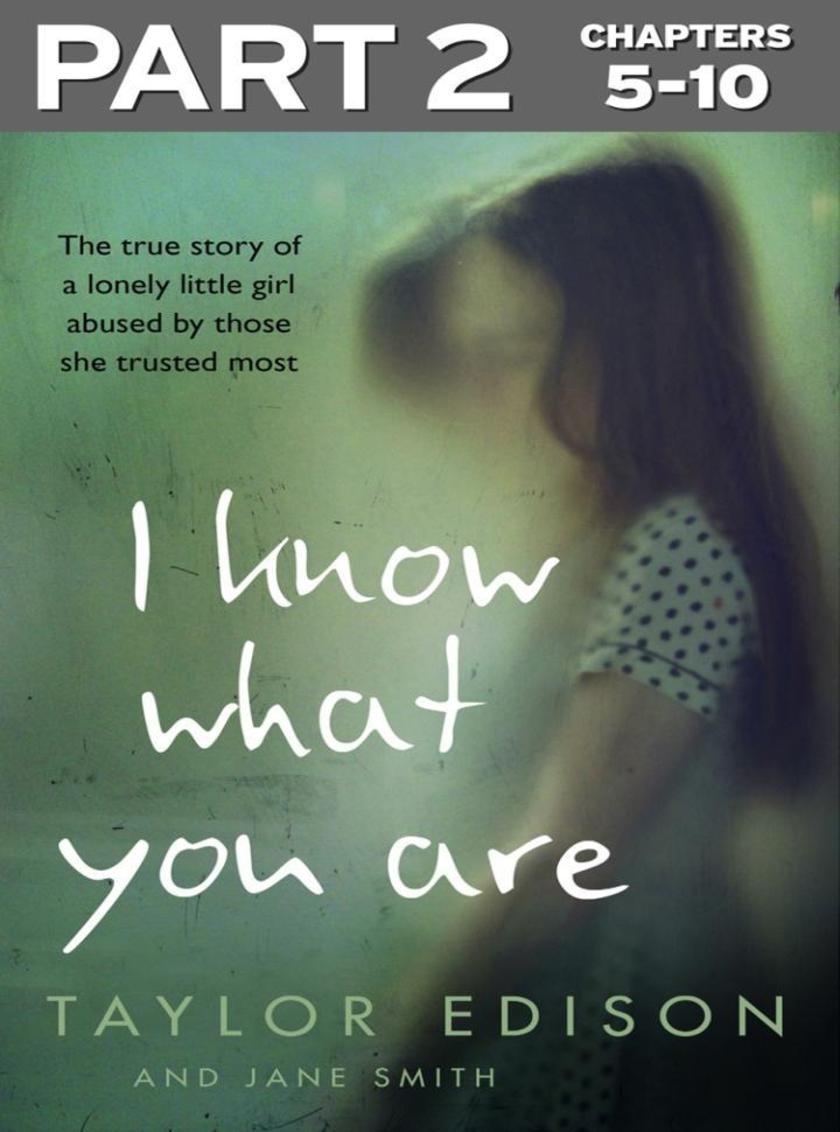
Part 2 of 3: The true story of a lonely little girl abused by those she trusted
¥25.60
The moving true story of a little girl with Asperger syndrome, controlled and abused by the one person she called her friend. Taylor had always struggled to make friends – she felt ‘different’. Taylor never knew her father and her mother wasn’t around much. She just didn’t understand people, and was alone and scared much of the time. That was until, aged just 11, an older married man called Tom befriended her. She loved having someone who would talk to her, listen to her, a protector. But when he moved away a few months later she was easy prey to the gang of drug dealers and petty criminals who groomed and abused her, using her as a form of currency to appease their debtors and amuse their friends. Increasingly isolated and desperate, it began to look as though the pattern of Taylor's life had been set – until she started to fight back, determined to build a safe future for herself, however long it took.




 购物车
购物车 个人中心
个人中心



